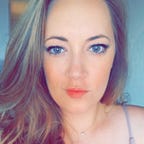An Essay in the Fifth Person
When it comes to identity, the best we can do is ask questions
![]() I recently read a writing prompt that stated that every seven years, all of the cells in our bodies shed and replace themselves, suggesting that every seven years we essentially become a new person.
I recently read a writing prompt that stated that every seven years, all of the cells in our bodies shed and replace themselves, suggesting that every seven years we essentially become a new person.
One of my high school teachers used to say there were two kinds of people in the world: “math and science people” and “liberal arts people.” As I fall very much into the second category, my interest in numbers lies in the patterns and symbolism behind them; the number seven is one of those mystic, culturally significant numbers that seem to contain secrets all its own.
There are seven days in a week, seven seas, seven continents, seven deadly sins, seven colors of the rainbow, Seven Wonders of the Ancient World, and “7 Rings” for Ariana Grande and six of her bitches (like I said, culturally significant). Ironically enough, the seven classical liberal arts — grammar, rhetoric, logic, geometry, arithmetic, music, and astronomy — include a considerable amount of math. So would that mean that, by my teacher’s standards, the ancient world was full of only one kind of person? And what would happen if their cells changed?
You could argue that identity, the conceptualization of who we are (whatever the hell that means), is…
